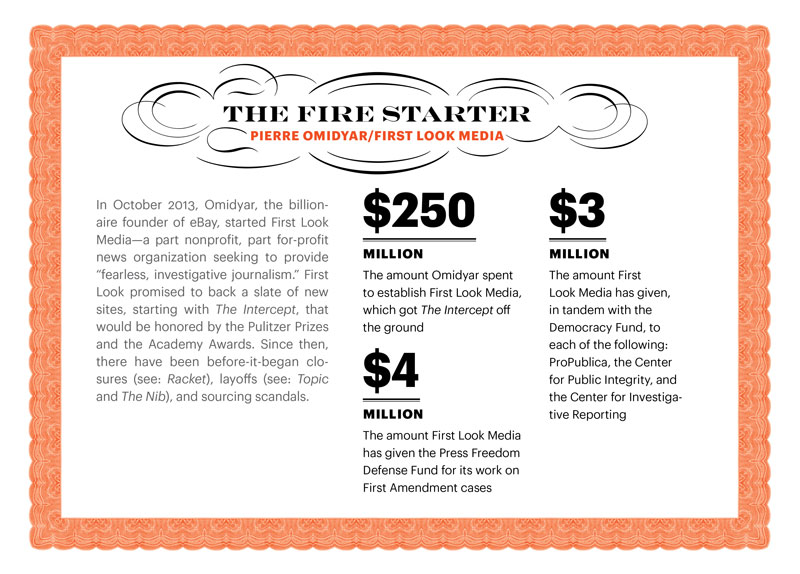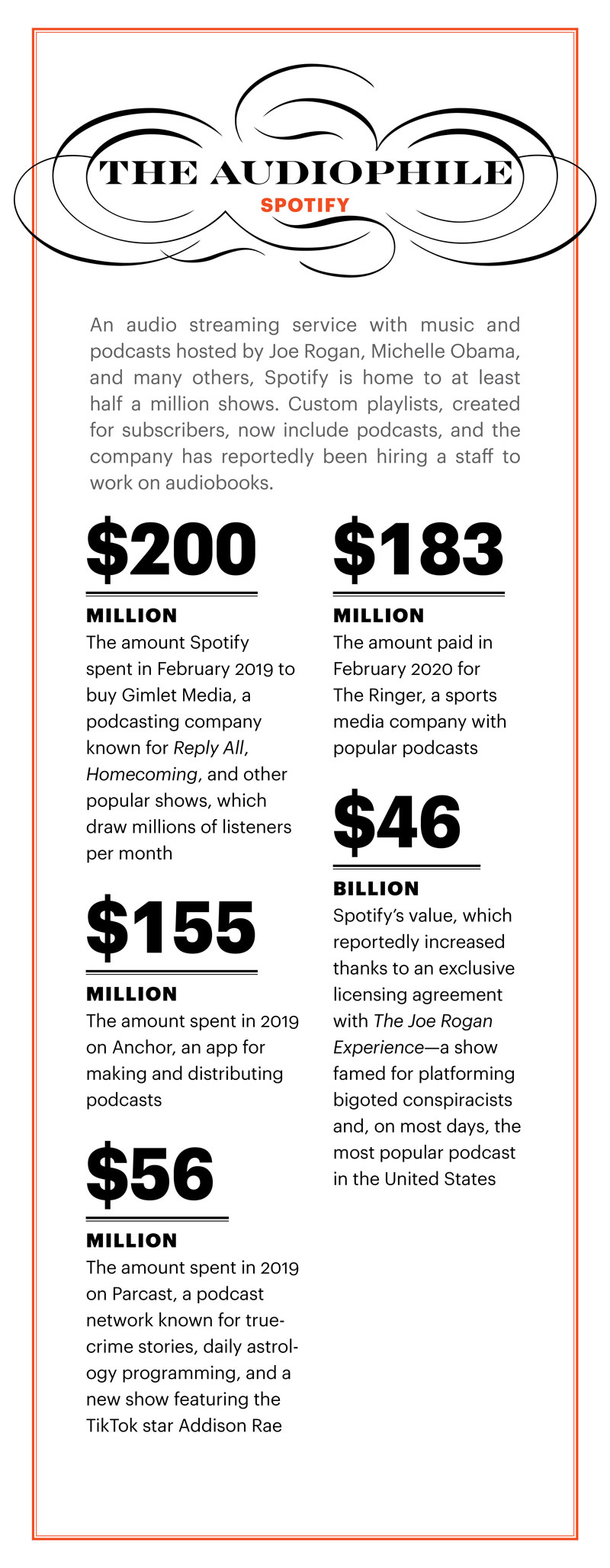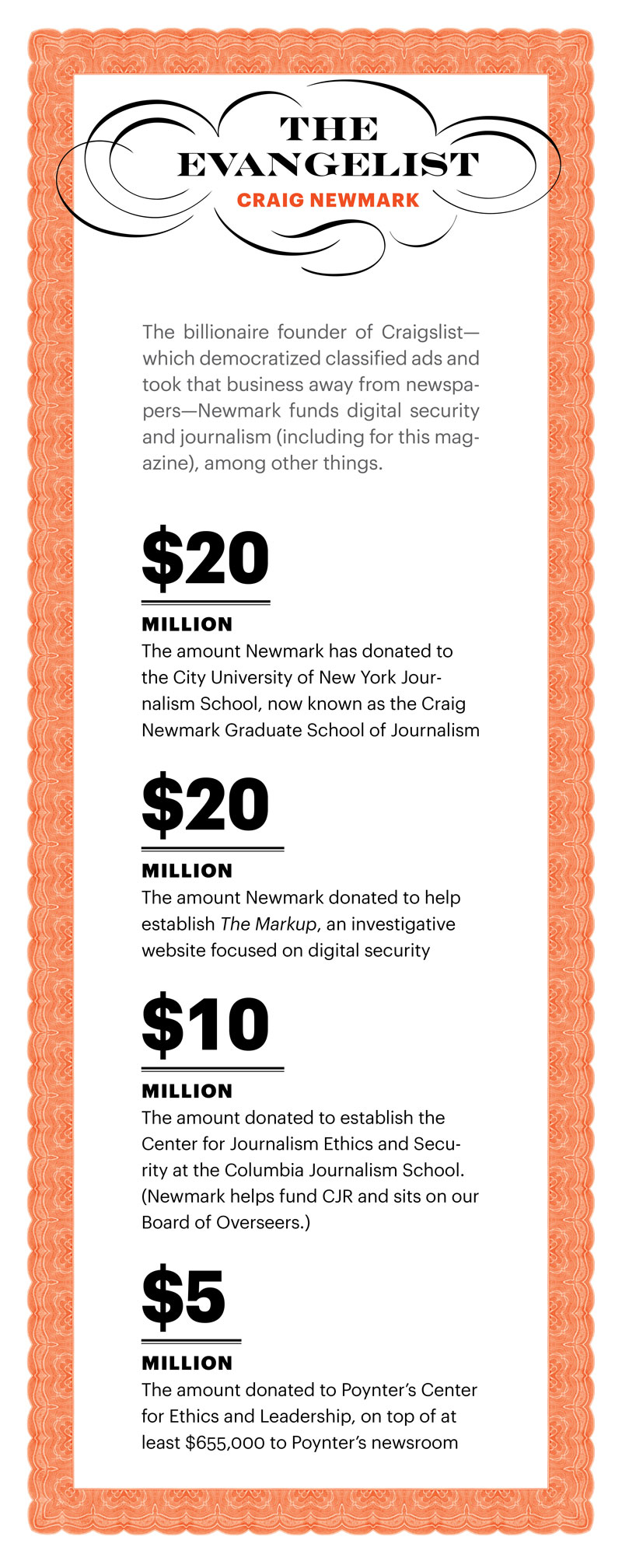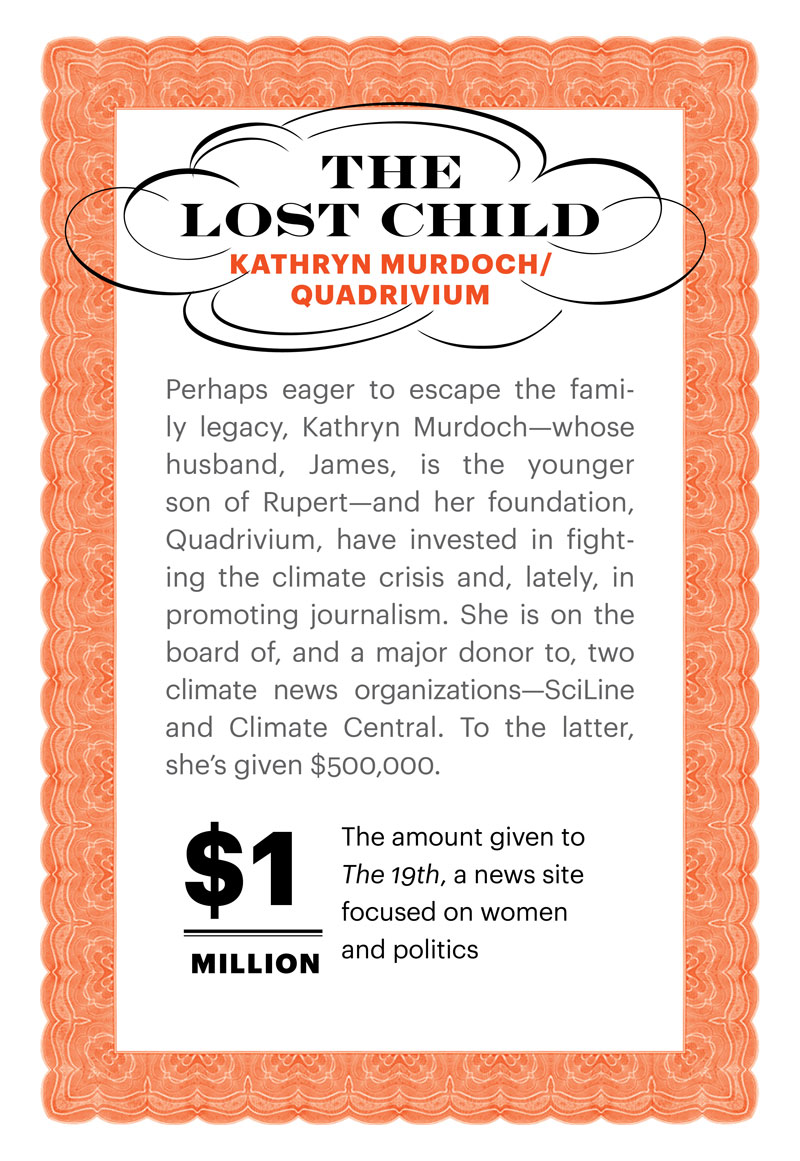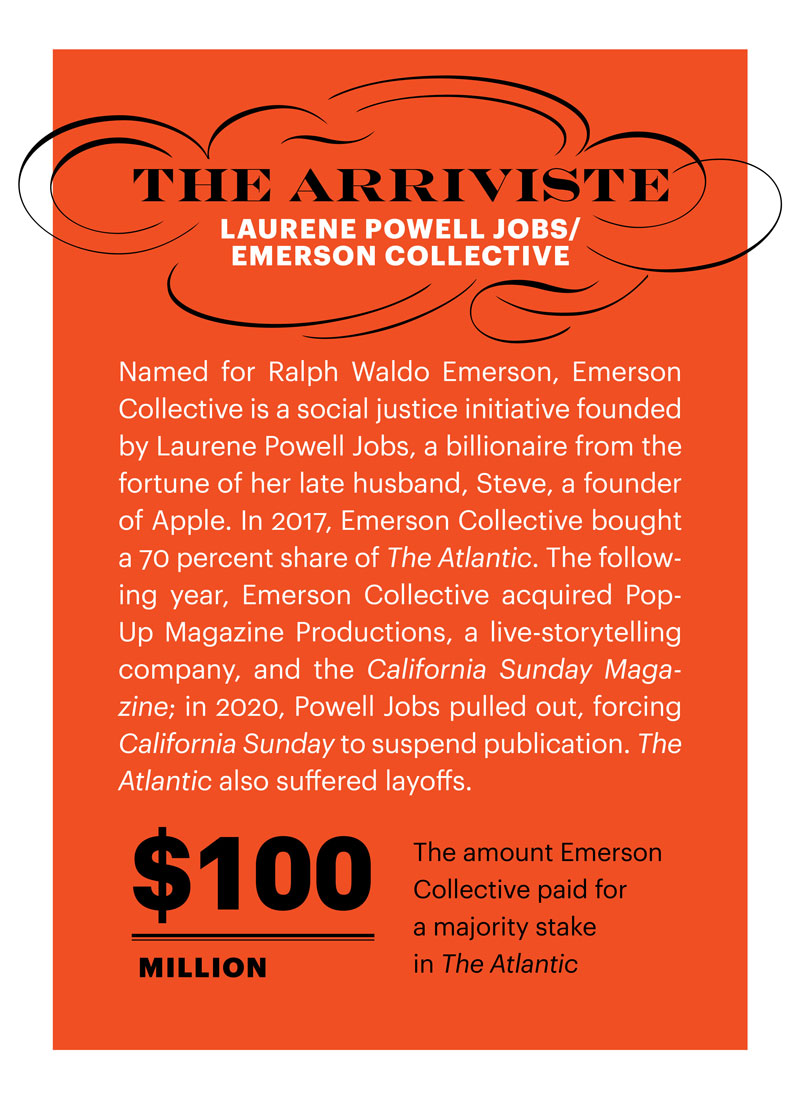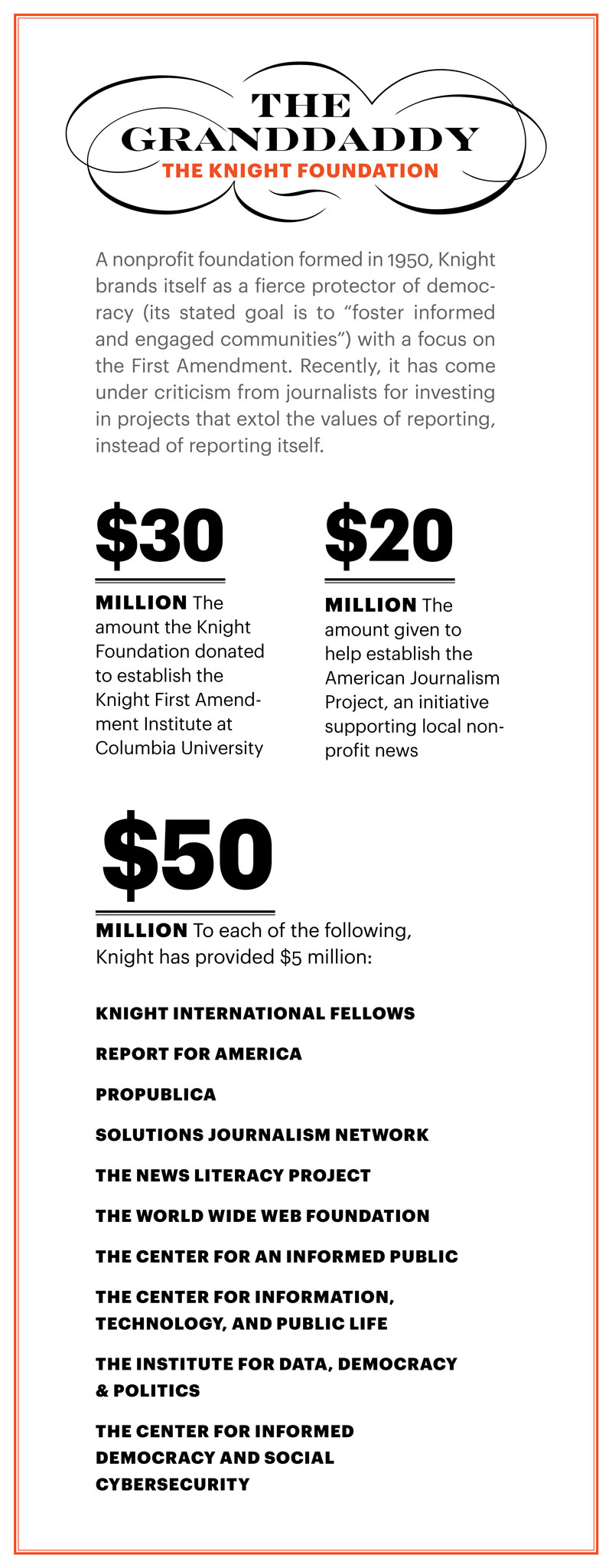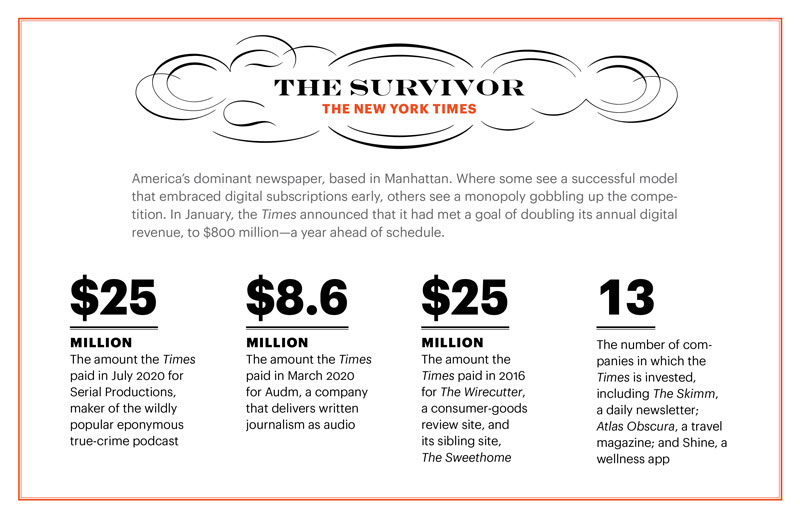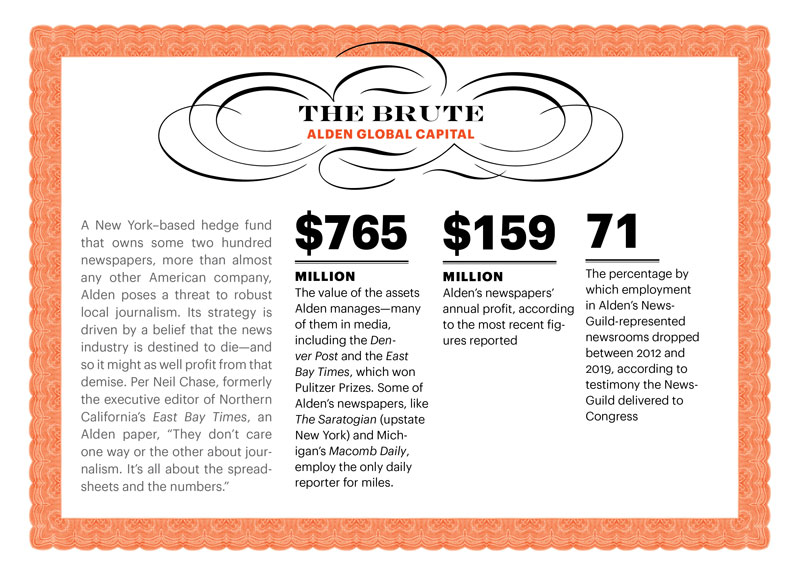While most news outlets are slashing budgets, an emerging class of philanthropists and streaming services—plus the country’s largest newspaper, the New York Times—are spending ambitiously, transforming the way Americans tell and consume nonfiction stories.
Netflix, Hulu, and HBO are merging reporting with entertainment—documentary meets reality TV. Spotify and the Times are investing in podcasts. As Alden Global Capital, the hedge fund, buys up newspapers and chops them down to stumps, charitable organizations have arrived to help—on their own terms. The Knight Foundation has supported projects to preserve First Amendment protections; some of that money goes to journalism, or to organizations that think about the press. Craig Newmark, the founder of Craigslist, funds digital security reporting (including for this magazine); through Emerson Collective, Laurene Powell Jobs looks to “empower storytellers”; Kathryn Murdoch—whose husband, James, is the younger son of Rupert Murdoch—focuses on the climate crisis. A few patrons banded together, raising $42 million to found the American Journalism Project, which supports thirty-five local news organizations around the country.
The media industry’s shift, from an advertising-based business to one reliant on subscribers and benefactors, has critical implications for the form and veracity of coverage. In looking at who is investing in what, we can observe what seems most promising—and what risks sacrificing journalistic independence.
Savannah Jacobson is a contributor to CJR.



